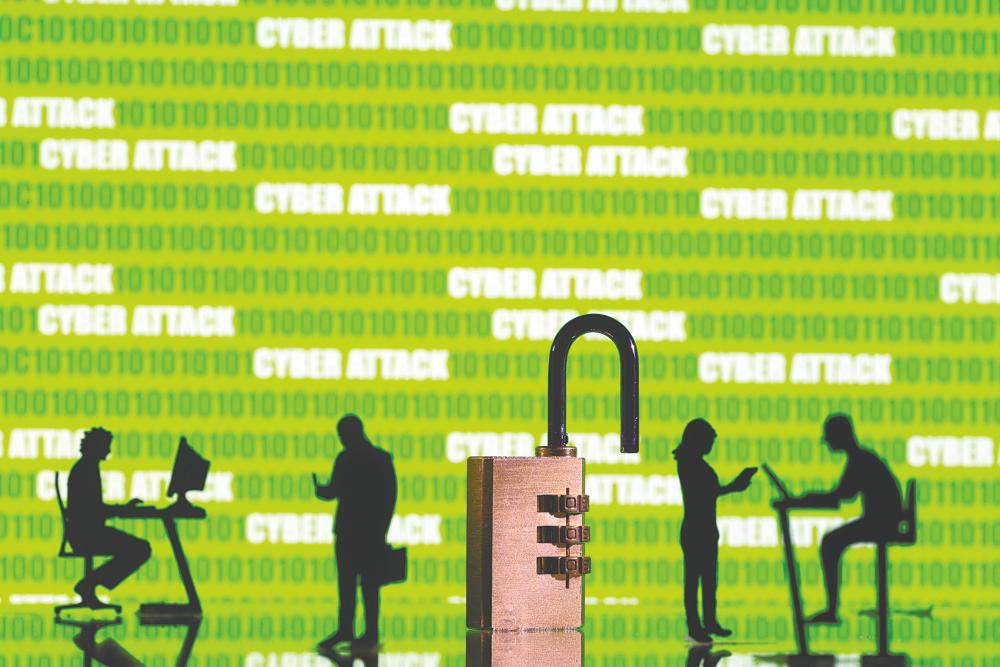TODAY’S global epidemic of cyberbullying is a serious issue that must be addressed. It permeates our schools, causing severe harm to students’ self-esteem and emotional well-being.
Workplaces are also plagued by vicious attacks, including the spread of lies and misinformation, threats, sexual harassment and invasion of privacy. Even athletes have become frequent targets of egregious online abuse.
If left unchecked, cyberbullies will destroy lives, wreaking havoc on their victims’ mental, emotional and physical well-being. It is imperative that well-defined laws are strictly enforced at every level of society to protect the public.
Schools must adopt a zero-tolerance policy, established by the district administration, clearly outlined in school handbooks, and distributed to parents. Students and parents should sign pledges to refrain from such behaviour and to report any cases of cyberbullying, whether personally experienced or witnessed.
Parents must understand that they are responsible for their children’s behaviour if they are under the age of 18. Cyberbullying has contributed to the loss of many young lives through suicide, and the problem is escalating.
If a student is identified as a perpetrator, strict and immediate consequences should follow. First-time offenders should receive counselling, along with their family.
Further infractions should result in more severe consequences, including a ban on access to social media platforms, reassignment to an alternative school for the remainder of the term, fines and ultimately a summons to appear before a judge in family court to determine additional actions.
Laws with strict guidelines and accountability should be applied at the discretion of judges when further consequences are warranted.
In the workplace, a clearly stated policy banning all forms of harassment, unwanted attention, threats, spreading of rumours and lies about other employees, and any form of coercion must be included in every employee’s contract.
Proof of cyberbullying in any form should be legal grounds for termination of employment and, depending on the severity of the offence, potential prosecution.
Many coaches advise athletes to turn off all social media platforms before and during competitions, opting to avoid fan interactions due to the potentially devastating impact of abusive comments.
Since mental conditioning and focus play such a pivotal role in an athlete’s preparation, anonymous threats and ridicule can disturb those essential keys to optimal performance.
Youth and Sports Minister Hannah Yeoh has voiced strongly against cyberbullies targeting athletes after fake photos of diver Nur Dhabitah Sabri were altered and lewd images circulated.
This online abuse must be stopped as it reveals sexist, racist, transphobic and homophobic content, along with unfounded accusations that pose a danger to sports and the well-being of athletes and others.
The wrongful use of digital technology is becoming increasingly sophisticated, making it easier to trace and track perpetrators. Their anonymity is diminishing. Additionally, laws are strengthening the processes for identifying these cybercriminals and holding them accountable.
The Singapore parliament has passed the Cybersecurity (Amendment) Bill, amending the Cybersecurity Act 2018. The Act has been expanded significantly to cover a wider range of entities.
Similarly in India, a person convicted under Section 67 of the Information Technology Act, 2000, faces imprisonment for up to three years and fines up to five lakh rupees (RM26,000). For subsequent convictions, the imprisonment may extend to five years and the fine may increase to 10 lakh rupees.
In Australia, the maximum penalty for unauthorised impairment of electronic communication is 10 years’ imprisonment.
All Australian jurisdictions have laws against cyberstalking, and anyone in Australia can contact the coordinated police centre for immediate assistance.
According to 2020 global statistics, Malaysia ranks second in Asia and sixth out of 28 countries worldwide for cyberbullying problems. The top three countries where parents reported the highest rates of cyberbullying are India, at 38%; Brazil, at 29%; and the US, at 26%.
The death of a Malaysian TikTok user has prompted the government to consider criminalising cyberbullying and increasing accountability among internet service providers.
Additionally, new amendments to the penal code are being proposed to include specific provisions on cybercrime.
According to Law Minister Azalina Othman Said, these amendments will define cyberbullying and classify it as a distinct offence in Malaysia. This proposed law will grant authorities the power to protect all internet users in the country, especially children.
Most crucial is the strict enforcement of laws and safety provisions for cyberbullying victims.
Comments: letters@thesundaily.com









